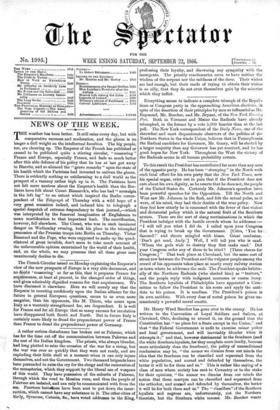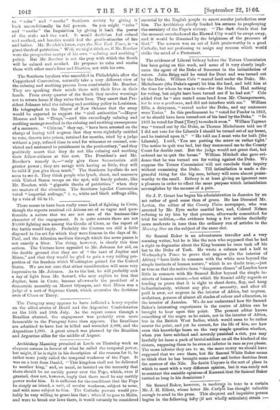Mr. Henry Ward Beecher has gone over to the enemy.
He has written to the Convention of Loyal Soldiers and Sailors, at Cleveland, Ohio, declining to attend it, on the ground that the Constitution has " no place for a State except in the Union," and that " the Federal Government is unfit to exercise minor police and local government, and will inevitably blunder when it attempts it ;" and that, however detrimental to the freedmen (and the white Southern loyalists, for they complain more loudly, because more articulately than the freedmen), the policy of unconditional readmission may be, " the sooner we dismiss from our minds the idea that the freedmen can be classified and separated from the white population, and nursed and defended by themselves, the better it will be for them and us." This is rather like saying of a class of men whom society has sent to Coventry or to the stake for their opinions, " the sooner we dismiss from our minds the notion that these martyrs can be classified and separated from the orthodox, and nursed and defended by themselves, the better it will be for both them and us." The " classifiers" of the Southern loyalists and negroes are, unfortunately, not the Northern theorists, but the SOuthern white masses. Mr. Beecher wants
to " calm" and " soothe" Southern society by giving it back unconditionally ita full powers. Se you might " calm " and "soothe" the Inquisition bye giving, it beck the pewee- of the stake and the card. It would doubtless feel calmed and soothed, and heretics would feel the gentleestimuln.s of7fire and halter. Mr. Be3ch.ir's letter, says the New York Times, is "a giant throb of patriotism." Well, we might think so, if Mr. Beecher were the prospective martyr of his own "calming and soothing" policy. But Mr. Beecher is not the prey with which. the South will be calmed and soothed. He proposes to calm and- soothe them with other men's lives and liberties, not with his own.































 Previous page
Previous page